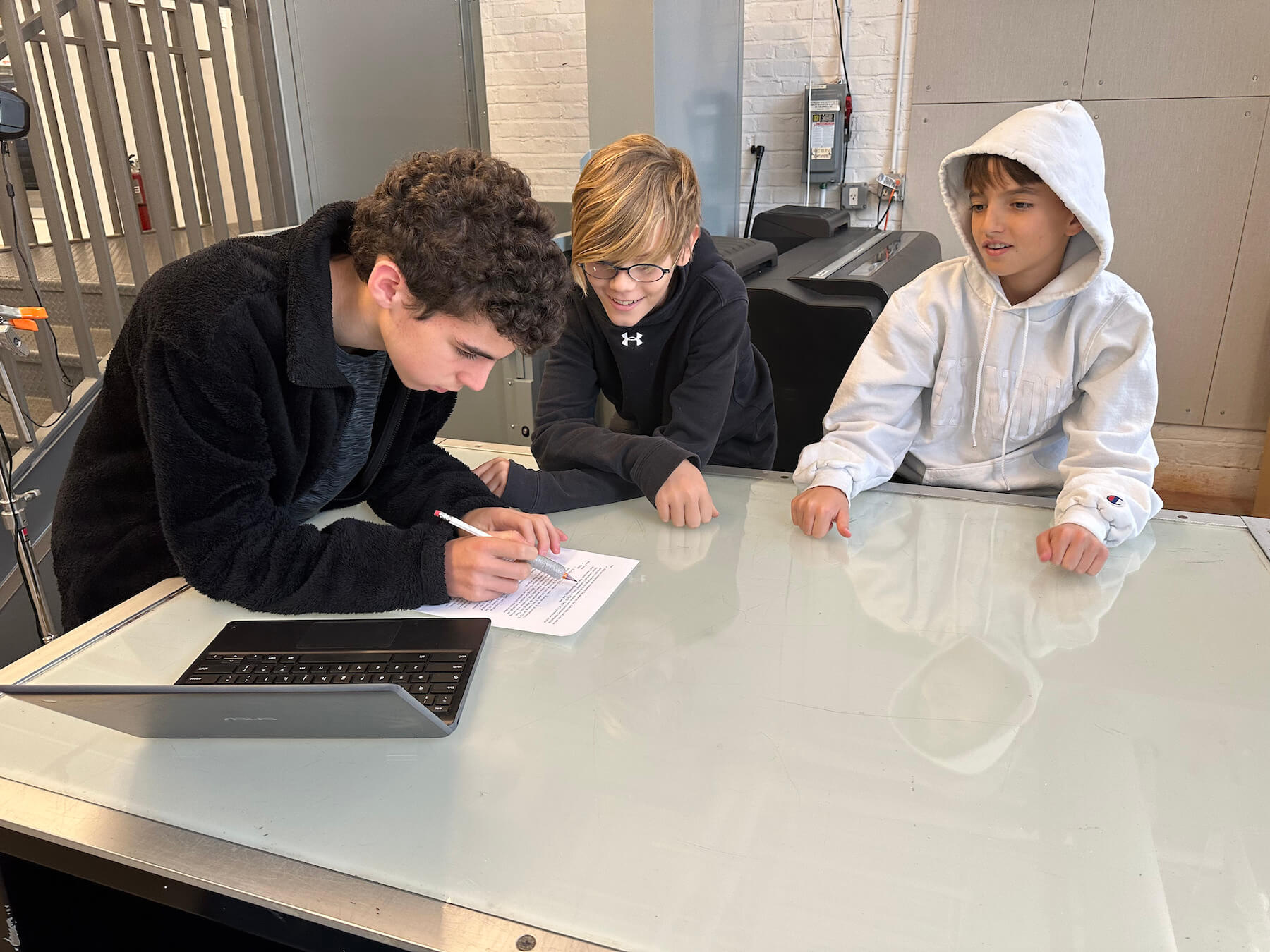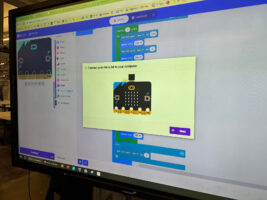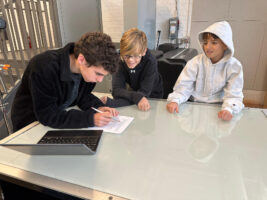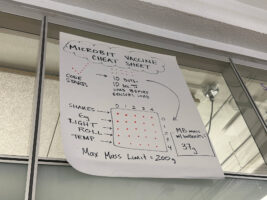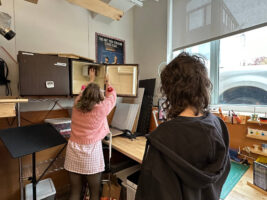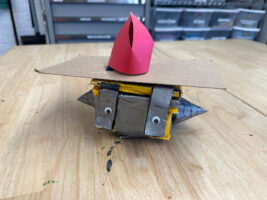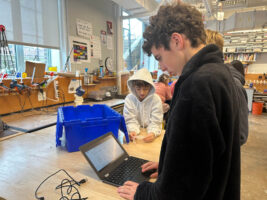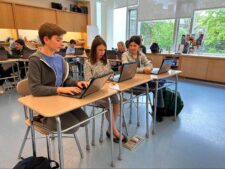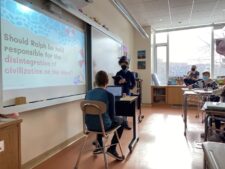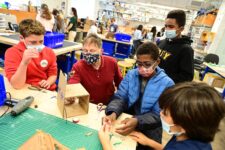In a recent 8th Grade Engineering class at Fieldston Middle, students could be found digging through the freezer, walking up and down steps, and typing away at their laptops together to conduct experiments. Such a collaborative scene wouldn’t have been possible a few years ago, and these 8th Graders recognized the value of hands-on partnership for both themselves and the world’s engineers during their recent vaccine transport project.
Having witnessed vaccines’ role in lessening the effects of the COVID-19 pandemic, students in John Baglio’s engineering class were tasked to explore the responsibility engineers fulfilled and continue to do in vaccine transport. They were asked to design an environmentally responsible package that was also effective in protecting their “vaccines,” which were actually tiny computers filled with sensors, from light exposure, impact force, and temperature changes.
“Originally introduced as part of the curriculum in the 2020–2021 academic year, I wanted to create a project that seemed relevant and could be worked on whether students were in-person at school or at home,” Baglio says of the assignment. “I think vaccines are still relevant today. The project also brings to light the myriad places where engineering touches our lives. The engineering of packaging is a crucial application.”
This microbit material comprising students’ packages contained code measuring its own position and condition throughout a series of obstacles. Using their engineering kits and recycling bin materials, each 8th Grade group had to fit their package completely within a rectangular box’s specific dimensions before enduring a stress test. These test checkpoints included carrying a package at least 20 steps on a winding path and up and down 10 stairs, dropping it once off a desktop, and putting it in the freezer for 20 minutes. Each 8th Grader also had to describe their group’s package and the different designs and structures utilized to keep the vaccine in a safe range, or tolerance, of shaking, rolling, temperature, direction, and light exposure.
This testing environment allowed students to branch out from a teacher’s guidance and make their own discoveries. “This project was really cool because this class in general is just about doing things independently,” says Ava R. ’28. “First, we had to look at the code for the microbit, and then it was just all hands-on. We watched videos about installation and had to incorporate all of that and do tests to make our project. It’s not like a lot of other classes where you have strict parameters as to what you have to do, but at the same time, it’s really fun and creative. You just have a group of people and then you challenge each other to make the best thing you can.”
“The beauty of hands-on learning is that you are bound by the rules of the physical world and, at least in engineering, the end product has to work,” Baglio says. “I think having that reality test built into hands-on engineering projects is a real plus.”
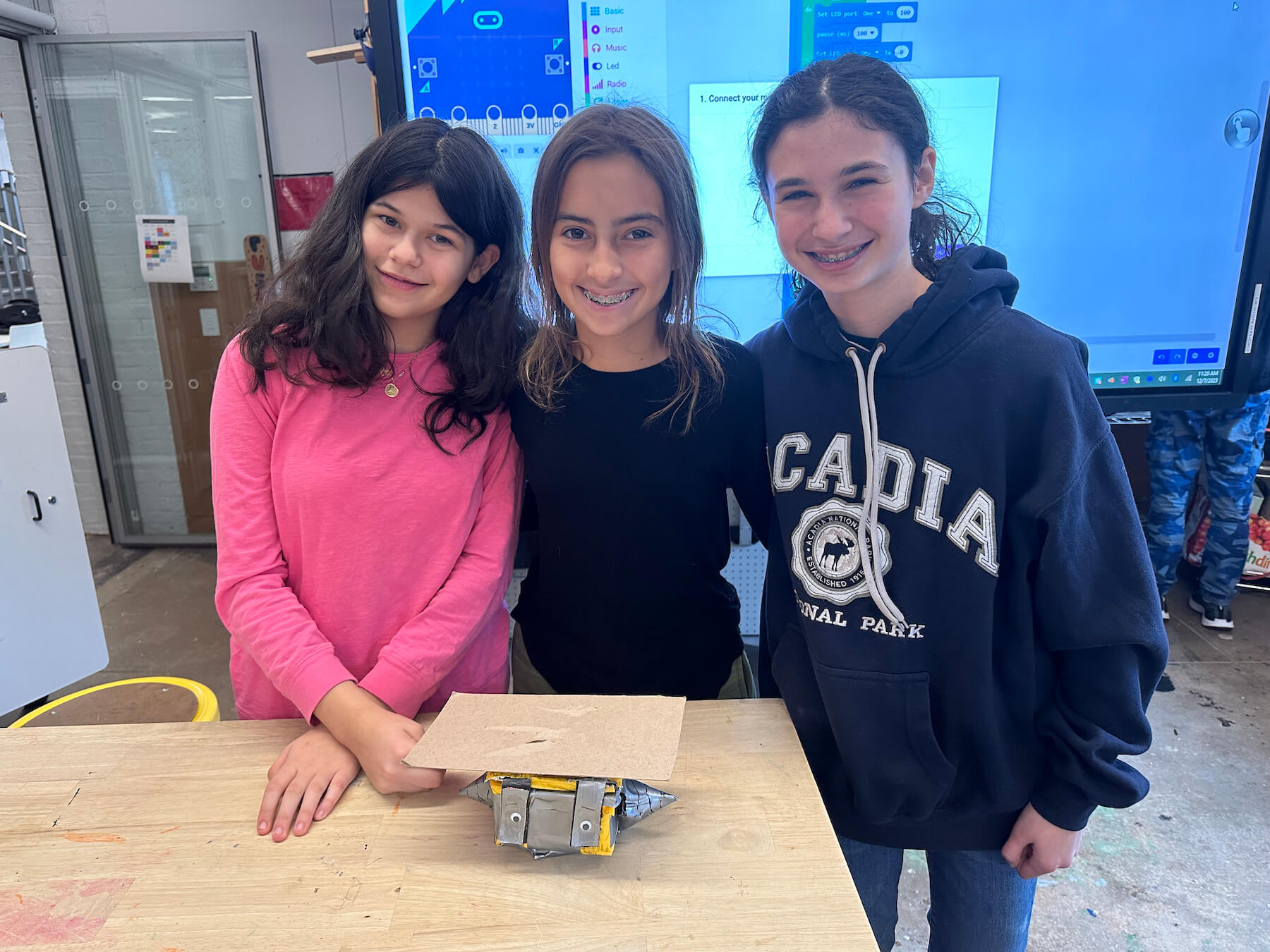
In addition to decoding and testing their designs, students worked together to produce infomercials explaining how their projects safely transported a vaccine. They were encouraged to be both creative and informative, editing these videos to showcase their test results in an entertaining way. Analyzing their work in the moment and later as a review familiarized the students with engineering concepts of packaging, tolerance, and g-force, broadening their knowledge for future projects.
“I definitely now know that some things will work just instinctively and some won’t,” Alma M. ’28 says.
“Hands-on learning is essential,” Baglio adds. “I feel that as our world becomes more virtual, screen-based, and abstract, it is important to supplement the learning experiences of students with a lot of hands-on work.” Through immersive projects like this, ECFS students are ultimately interacting with their learning, focusing their attention in new ways, retaining information differently, and seeing firsthand the impact of their work.
Tactile learning is especially important for engineering, which Fieldston Middle students may explore as early as sixth grade through both classes and club opportunities. In one 8th Grade class, a group of three included one student who had studied engineering since starting middle school and was guiding his partners, who were new to the class this year. Regardless of how early students are exposed to engineering, this preparation for more advanced high school knowledge is immeasurable.
“I think that this prepares us for high school because we’re doing projects with all of the basic knowledge that you have to know, such as coding, constructing, and also adding an artistic, creative value to the projects, “ says Olivia U. ’28.
“This is good for teamwork and time management, even though it’s definitely going to be different from the essays we’re going to be writing,” Ava adds. “It still has the core values of working with the group and getting things done on time and just using your creativity.”
